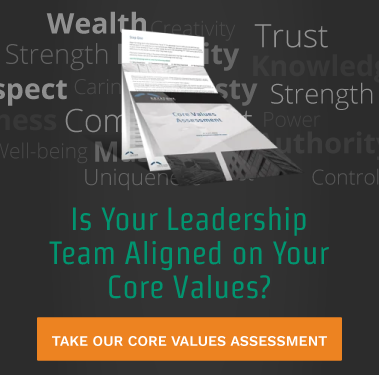I’ve had the pleasure of speaking with many Visionaries who are considering an Integrator search. I have never told any of them it cannot be done successfully on a DIY basis. If you really commit to all the steps and have both the expertise and time to do them well, it’s doable.
I am an unapologetic do it yourselfer. In my home I do my own painting, plumbing, carpentry, landscaping and various other projects. I enjoy the work as a diversion from my desk job, and I like saving a little money on professional contractors.
That said, there is one thing I never do myself; Electrical work. Why? Because doing it correctly takes training and practice…and the stakes of screwing it up are WAY too high. A bad connection or improperly grounded circuit can cause a fire. Maybe the scariest thing about electrical work is that you often won’t recognize a mistake right away. One small goof up like a poorly grounded circuit or improper connection may not show up until much later when it sparks a fire inside the wall.
In some ways, recruiting the right Integrator is similar to electrical work, you won’t always recognize a mistake (poor hire) until 6 months or a year down the road. By the time you figure it out you’ve lost precious time and momentum and possibly even done damage to the business you’ve built. Also, just like electrical work, recruiting a great Integrator is complicated and a small mistake along the way can lead to a bad hire.
When you are ready to hire the right Integrator that’s truly going to provide rocket fuel for your business it’s essential you can perform all of the following tasks exceptionally well:
- Building the right profile: The book Rocket Fuel does an excellent job of laying out the key qualities of an Integrator, but there are unique facets of your business that must be factored in to your search - i.e. your culture, your industry/business model, your growth plans and your personal Visionary profile. Obviously if the profile isn’t correct, you’ll be evaluating the wrong things in potential candidates.
- Sourcing: You can’t ultimately hire the rock star Integrator if they aren’t in your recruiting funnel to begin with. Just posting your opening on a job board and spreading the word around town will not draw in the best of the best. They need to be actively recruited because the overwhelming majority (close to 96%) of the best candidates are working somewhere else. Let me say that again, 96% of the people who could become your Integrator are working at another company. If you only draw in “active” candidates, you are missing an enormous number of possible Integrators (and very likely the right one).
- Interviewing: Integrators possess an incredibly rare combination of skills, experiences and characteristics. If you are not proficient at teasing out each of these in an interview process it’s easy to miss something critical. Unfortunately, hiring an Integrator with 75% of the qualifications isn’t likely to produce rocket fuel. And, if you miss on leadership ability or cultural fit, you may do some real damage to your business. Check out The 5 Key Checkpoints for Evaluating Integrators.
- Managing the recruiting/hiring process: Again, the great majority of candidates for your Integrator role are busy leaders, working for someone else. If the process drags on too long, feels disorganized or is otherwise poorly executed, the best candidates will quickly lose interest. Remember, the candidates you most want have been & are successful at other companies. Given this, they are not desperate to leave their current employer; They must be convinced your opportunity is better than their current situation.
However, it’s important to evaluate what is really at risk. Considering an Integrator will lead your team, interact with your clients/vendors/suppliers and manage your P&L, can you really afford having the wrong person in the seat - even for a short time?
-1.jpg)



